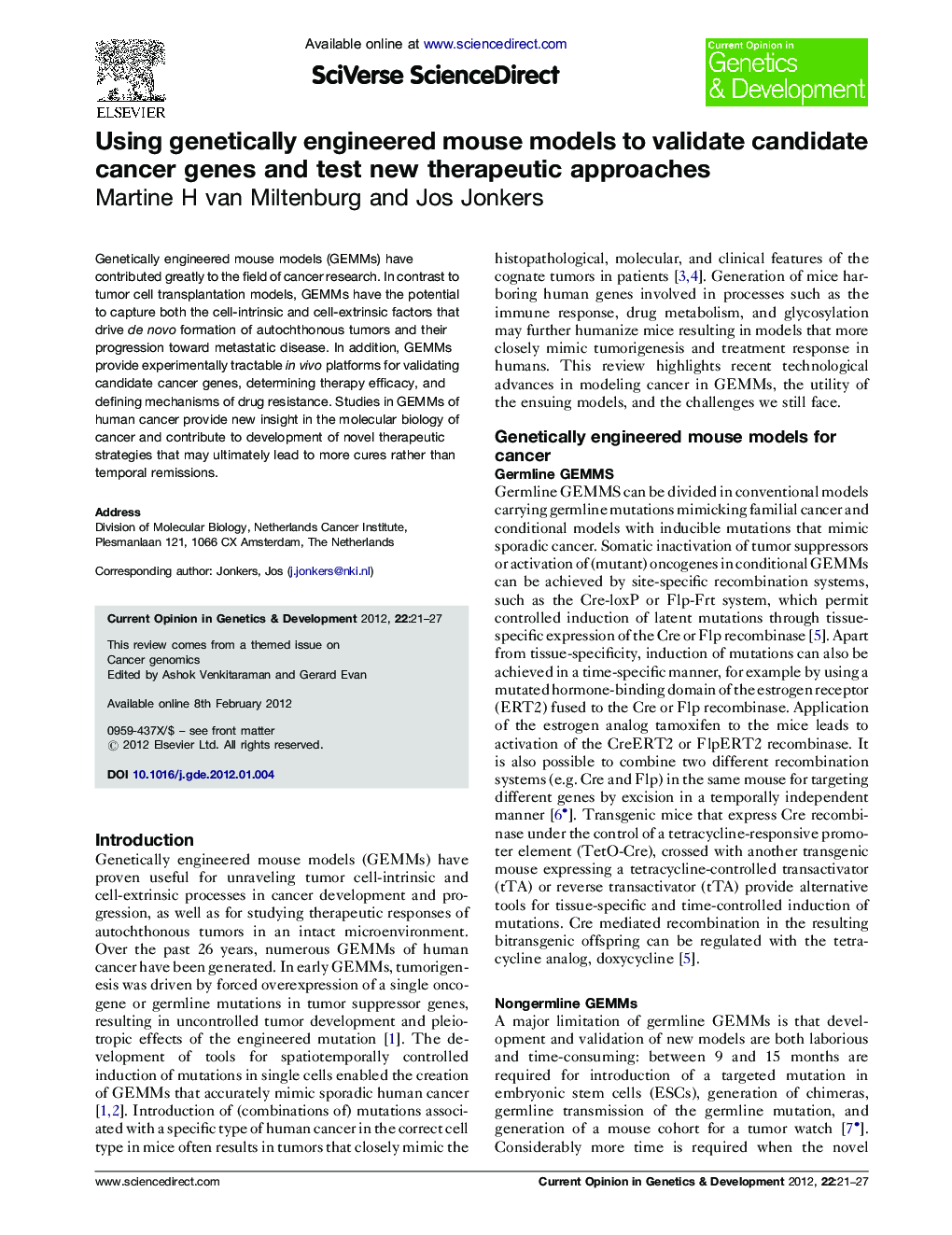| Article ID | Journal | Published Year | Pages | File Type |
|---|---|---|---|---|
| 5893684 | Current Opinion in Genetics & Development | 2012 | 7 Pages |
Abstract
Genetically engineered mouse models (GEMMs) have contributed greatly to the field of cancer research. In contrast to tumor cell transplantation models, GEMMs have the potential to capture both the cell-intrinsic and cell-extrinsic factors that drive de novo formation of autochthonous tumors and their progression toward metastatic disease. In addition, GEMMs provide experimentally tractable in vivo platforms for validating candidate cancer genes, determining therapy efficacy, and defining mechanisms of drug resistance. Studies in GEMMs of human cancer provide new insight in the molecular biology of cancer and contribute to development of novel therapeutic strategies that may ultimately lead to more cures rather than temporal remissions.
Related Topics
Life Sciences
Biochemistry, Genetics and Molecular Biology
Developmental Biology
Authors
Martine H van Miltenburg, Jos Jonkers,
